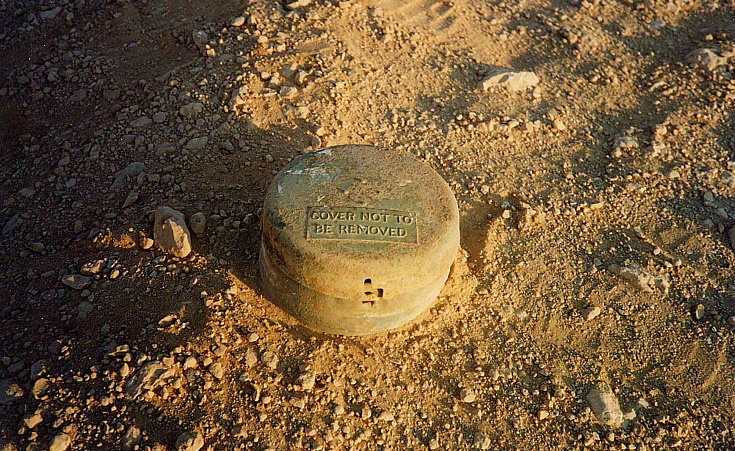British Ambassador Claims Progress Has Been Made to Clear Millions of Mines From Egypt's Deserts
British Ambassador John Casson highlights that the UK has invested $10 million over the last decade to remove millions of mines and spread awareness of their presence, and that an increased effort over the last two years has cleared over 500 sq km.

The effort to clear landmines from Egypt seems to be making good progress according to the British Ambassador to Cairo, John Casson. Speaking with state-run news agency MENA, Casson claims that the UK has given the Egyptian government all recorded maps they have of landmines placed in the western desert, and have invested over $10 million over the last 10 years to help clear millions of mines and spread awareness to communities living near them.
According to a 2009 State Information Service report, a whopping 17 million landmines were left in Egypt’s western desert, and another 5.5 million in Sinai and the eastern desert, many of which were left behind by British, German, and Italian troops during World War II.
Tragically, the million tonnes of unseen explosives have led to more than 150 casualties and scores of amputees, with the most recent incident claiming two lives and injuring three others in Wadi El-Natrun in late August.
Bringing this important and lethal issue back into the headlines, Ambassador Casson explained that over the last 10 years the UK has invested $10 million for removal of landmines and has launched an awareness campaign that reached as many 16,000 people at risk. A lot more needs to be done to fix the problem, although Ambassador Casson points out that, thanks to a partnership with the EU and the UN, progress has increased considerably over the past two years, claiming that “500 square km of mines were cleared.”
Despite the increased efforts, there are still plenty of unexploded mines, and those living in these areas should remain cautious.
























